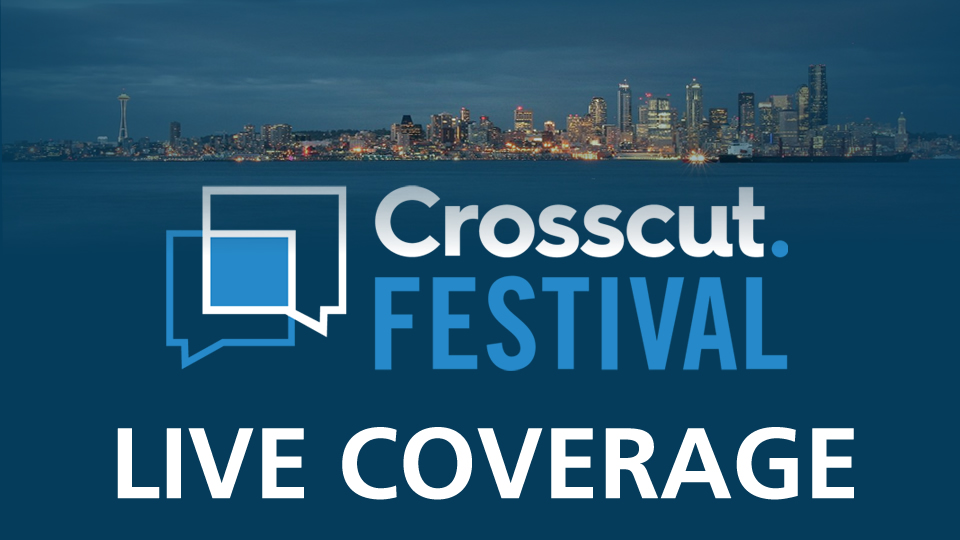The first session I attended today was “Bridging the Cascade Divide” discussing the political differences, but also the commonalities, between Eastern and Western Washington. Moderated by journalist Ted McGregor, panelists include highly-rated, non-partisan pollster Stuart Elway, Grant County Superior Court Judge David Estudillo, Kelli Scott of The Wenatchee World, and Representative J.T. Wilcox of Washington’s 2nd District including southeast Pierce and Thurston Counties.
McGregor, publisher of The Inlander and Spokane Weekly, started off with some jokes and fun commentary using the stereotypes both that Westside folks have of Eastern WA, and vice versa.
Elway started with a bunch of statistics, only a handful of which I was able to capture. Of note was the fact that 25 of the Washington counties that voted for Trump in 2016 were among the least economically prosperous in the state. He noted that part of where the Cascade Divide comes from is that fact that “politics is organized by interest, but government is organized by geography.”
He also noted that his polls show that a lot of resentment for Western WA on the part of people in Eastern WA is based on the (false) assumption that their taxes pay for things in Western WA, which they don’t benefit from. In reality, there are six “donor counties” in Washington that pay more in taxes than they get back in services from the state, and those are five Puget Sound counties plus Kittitas. Only 12% of poll respondents correctly answer that their county receives more than they give.
Wilcox, who describes himself as a “middle-of-the-roader” in the Washington State Legislature, noted that he has noticed a change over the years, in that there has always been an ideological divide to some extent, but there used to be a lot more moderates.
He points out that most Republicans, in Washington and across the country, represent the least wealthy counties. The old adage that “he who has the gold makes the rules” is true to some extent in Washington, he said, and that is at the root of a lot of the resentment from Eastern and rural Washington towards Western and urban Washington.
Scott lives in Eastern WA and is the editor of a newspaper in Wenatchee, but lived for many years in Tacoma, so she feels like she sees both sides of the divide. She sees a lot of false narratives that play out in Eastern WA, with folks believing in the stereotypes of “lazy urban people vs. hardworking rural folks.” This is connected to the economic resentments and inaccurate beliefs about taxes that Elway and Wilcox mentioned.
She also noted that there is resentment in the Leavenworth and Chelan areas around availability and affordability of housing. There are many people from the West who buy second houses in those areas, and use them primarily as short-term rentals, reducing the amount of housing available for people who work in those communities.
Scott also made a prediction about this fall’s Congressional elections, saying she would be surprised if Dino Rossi, the Republican candidate in the 8th District, didn’t get at least 60% of the vote in Central Washington.
Judge Estudillo agrees a lot of the divide comes down to socioeconomic issues. He said that it seems like a lot of people in Grant County see King County, and Seattle specifically, as elitist. They have resentment over taxation and regulations that the feel hinders small business, and don’t see the benefits that their community receives from the more populated counties.
He sees the biggest challenge to bridging the divide is the lack of interaction across the lines. This makes people unable to see the common ground they share. He finds that if people have the chance to sit down face to face and have real conversations, they come to understand each other more.
When asked by McGregor how the state legislature could help to bridge the divide, Rep. Wilcox noted that the legislature is probably not well suited for the best kind of communication because it is set up to have opposition. However he said that elected officials on both sides of the aisle do have social relationships and get along, but that more often happens in private, not in public.
Wilcox also mentioned that this panel was the third one he had been asked to participate in on the same topic in the last few months, so it is clear that people are concerned about this issue.
Elway then talked about how he used to say that Washington state was “one-third Democrat, one-third Republican, and one-third Independent, with the largest third being Independent.” But he says that is not really the case anymore. Since 2010, Republicans are down to about 25%, and that Democrats and Independents go back and forth of who has the largest portion.
McGregor next pointed out some industries that have moved to Eastern WA in recent years, including server farms in Quincy and carbon fiber being made in Moses Lake. He then asked if there was any moderation in resentment for Western WA because of the jobs brought to the area by industries supplying the West.
Judge Estudillo thought yes, to some extent. He noted that when outside companies come in to the community and invest, they also send employees from outside the area who move in. They then are working and living alongside locals, and through these interactions people begin to see the common ground they share. He said this shows that change is possible.

